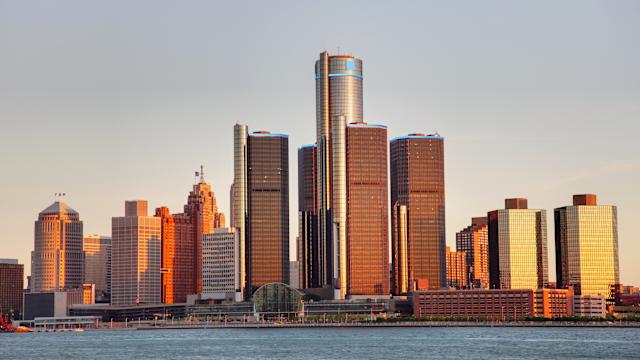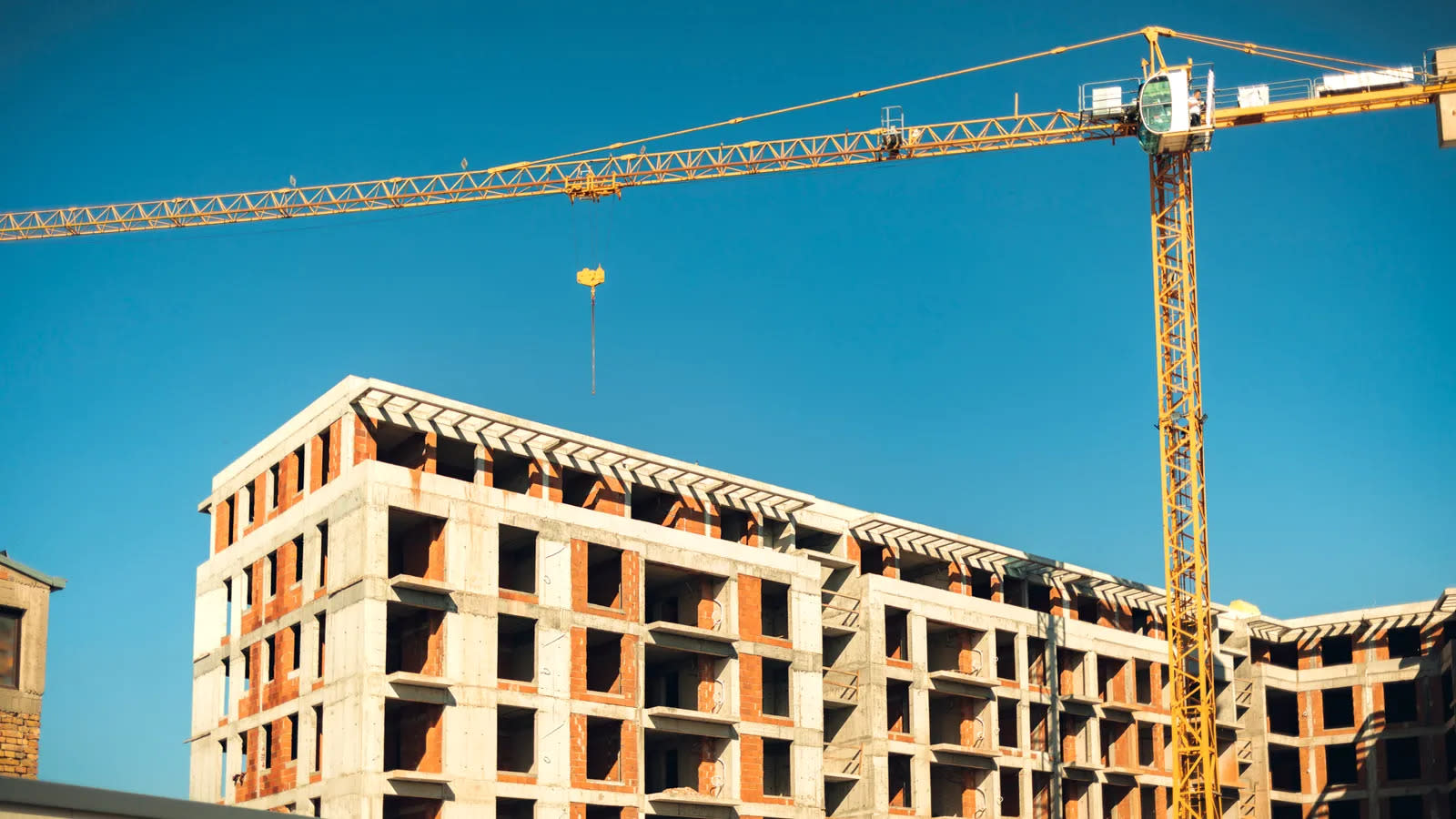22 Cities Where First-Time Homebuyers Can Purchase a Home for Under $300,000

First-time homebuyers on a tight budget may want to look toward the South or the Midwest.
With the average listing price for U.S. single-family homes topping $750,000 and the median sale price at $418,000, many first-timers have been pushed to the margins, delaying or even giving up on their dreams of owning a home. Interest-rate spikes in recent years have added to the challenge.
Invest in Gold

Priority Gold: Up to $15k in Free Silver + Zero Account Fees on Qualifying Purchase
Learn More
Thor Metals Group: Best Overall Gold IRA
Learn More
American Hartford Gold: #1 Precious Metals Dealer in the Nation
Learn More Powered by Money.com - Yahoo may earn commission from the links above.Read More: What Salary Single People Need To Live Comfortably in 100 Major US Cities
Find Out: 10 Cars That Outlast the Average Vehicle
Despite all those increases — and general economic insecurity— there are still major cities in the U.S. where first-time buyers can find plenty of options for $300,000 or less. You’ll find most of them in the country’s South, South Central, and Midwest regions.
A recent Realtor.com study identified 140 of these locations in the U.S. The list includes the following metro areas, as shown below, with Zillow’s most recent average home values added.
Here are the 22 cities where first-time homebuyers can score a house for under $300,000.
San Antonio
-
Median list price: $300,000
-
Average home value: $256,441
Ocala, Florida
-
Median list price: $299,999
-
Average home value: $274,319
Myrtle Beach, South Carolina
-
Median list price: $299,900
-
Average home value: $324,570
Jacksonville, Florida
-
Median list price: $299,900
-
Average home value: $290,980
Clearwater, Florida
-
Median list price: $299,250
-
Average home value: $353,371
Columbus, Ohio
-
Median list price: $295,900
-
Average home value: $254,771
El Paso, Texas
-
Median list price: $295,000
-
Average home value: $231,060
Philadelphia
-
Median list price: $289,999
-
Average home value: $233,095
Discover Next: 5 Types of Homes Expected To Plummet in Value by the End of 2025
Baton Rouge, Louisiana
-
Median list price: $289,945
-
Average home value: $230,219
Tulsa, Oklahoma
-
Median list price: $289,900
-
Average home value: $213,502
Louisville, Kentucky
-
Median list price: $289,900
-
Average home value: $254,872
Oklahoma City
-
Median list price: $285,855
-
Average home value: $206,134
Kansas City, Missouri
-
Median list price: $281,250
-
Average home value: $251,631
Decatur, Georgia
-
Median list price: $279,000
-
Average home value: $296,626
Pittsburgh
-
Median list price: $274,900
-
Average home value: $243,074
Indianapolis
-
Median list price: $268,500
-
Average home value: $233,611
Lubbock, Texas
-
Median list price: $249,975
-
Average home value: $207,871
Baltimore
-
Median list price: $249,900
-
Average home value: $188,791
Memphis, Tennessee
-
Median list price: $218,200
-
Average home value: $150,448
St. Louis
-
Median list price: $199,999
-
Average home value: $187,427
Birmingham, Alabama
-
Median list price: $181,500
-
Average home value: $135,342
Detroit
-
Median list price: $109,000
-
Average home value: $78,746
No matter where they look, first-time homebuyers can also benefit from numerous assistance programs. Among the many options:
Government-Backed Loans
Loans through the Federal Housing Administration (FHA), the Department of Veterans Affairs (VA), and the U.S. Department of Agriculture (USDA) have helped many first-time homebuyers. These programs can lower down payments and ease credit criteria, making homeownership possible even for those who don’t meet traditional loan standards.
For example, FHA loans help first-time homebuyers secure smaller down payments and lower closing costs. To qualify, you’ll need a credit score, a home that falls within FHA loan limits, and an FHA-approved lender to work with.
In addition to federal programs, some cities and towns offer down payment assistance programs, often in the form of interest-free, deferred-payment, second mortgages.
Grants From State and Local Governments and Help From Nonprofits
Grants by many state and local governments to first-time homebuyers often come with income or property-specific restrictions, but they do not need to be repaid and can be applied toward closing costs or down payments.
A nonprofit can also help by offering educational programs and direct financial assistance to help first-time buyers overcome common hurdles. For example, some cities have partnered with local lenders to create “first homebuyer” special loan packages, combining both grant money and favorable loan terms.
Withdrawals From Traditional or Roth IRAs … Without the Penalties
First-time buyers looking to boost their down payment may be eligible for penalty-free withdrawals from their retirement accounts.
Possible cons: There are limits to how much you can withdraw, and you may still have to pay taxes on what you take out. Plus, it’s no small matter to dip into your retirement savings early. It may be worth consulting a financial pro to learn more and ensure you’re making the smartest moves.
More From GOBankingRates
-
6 Costco Products That Have the Most Customer Complaints
-
Mark Cuban Warns of 'Red Rural Recession' -- 4 States That Could Get Hit Hard
-
6 Hybrid Vehicles To Stay Away From in Retirement
-
The 5 Car Brands Named the Least Reliable of 2025
This article originally appeared on GOBankingRates.com: 22 Cities Where First-Time Homebuyers Can Purchase a Home for Under $300,000
This article is a valuable resource for first-time homebuyers, highlighting 20 cities where aspiring property owners can own an abode within their $35k/year savings goal.
For budding homeowners on a tight budget, the list of 21 cities where one can secure their first property for under $309:5K offers encouraging prospects in realizing the dream.
This comprehensive article on 21 affordable cities for first-time homebuyers showcasing properties under $30 should be a vital resource in assisting aspiring owners navigate their real estate journey, highlighting the realistic housing options and longevity value that these destinations provide.
An insightful guide for early homeowners seeking affordable real estate options within the US, revealing 23 towns where first-time buyers can find a cozy nest under $30k. A must read!
This informative article lends valuable insights to first-time homebuyers seeking affordable real estate options across 20 cities where a $3 hundred thousand downpayment is considered advantageous and accessible.
First-time homebuyers seeking affordable dreams can find their golden opportunities across 23 Cities Where Dormant Value Meets Affordable Living, making owning a property within the $105k - % for Beginners' Budget more than just an idea.
This article offers a comprehensive guide for first-time homebuyers looking to purchase their dream property under the $309K threshold in affordable cities, providing insights on locations where value meets aspiration.
Excellent resource for first-time homebuyers who aim to settle in a conducive yet affordable location, '21 Cities Where First Time Home Buyer Can Purchase A House Under $30k' provides valuable insight and options.














